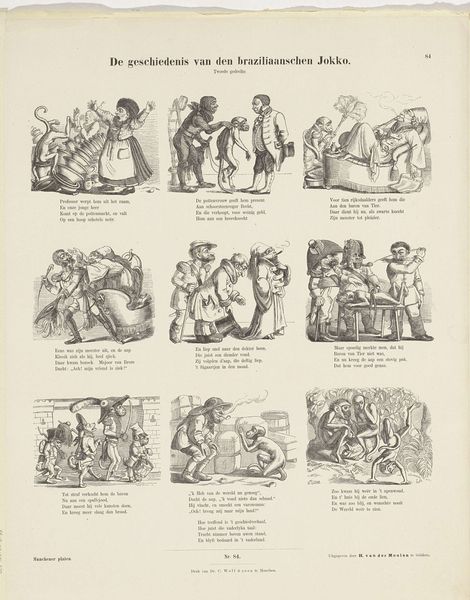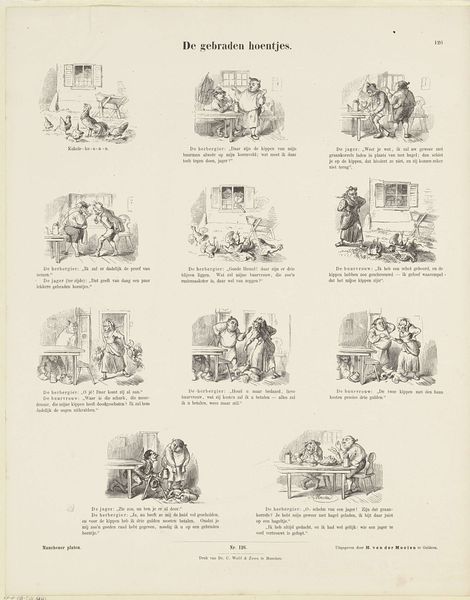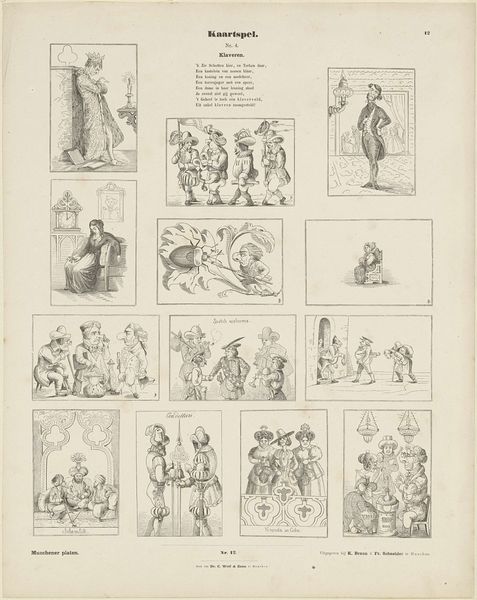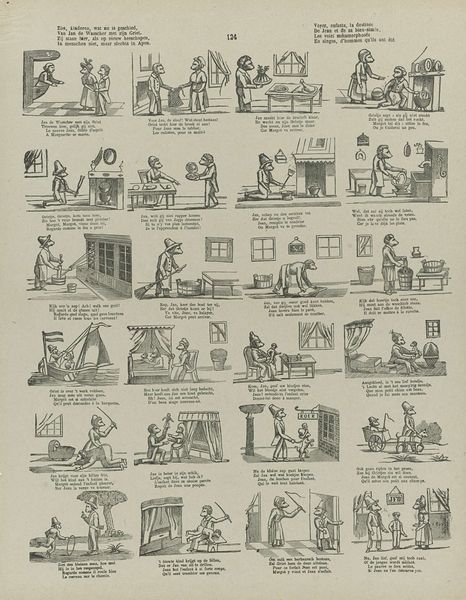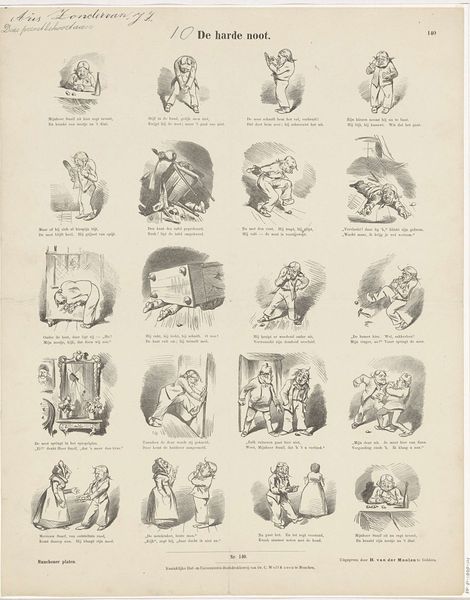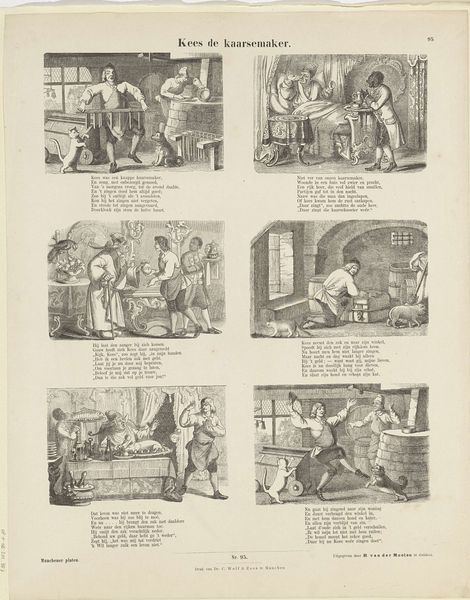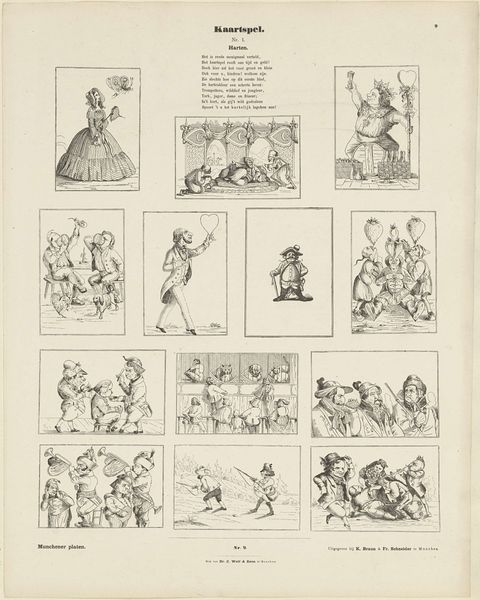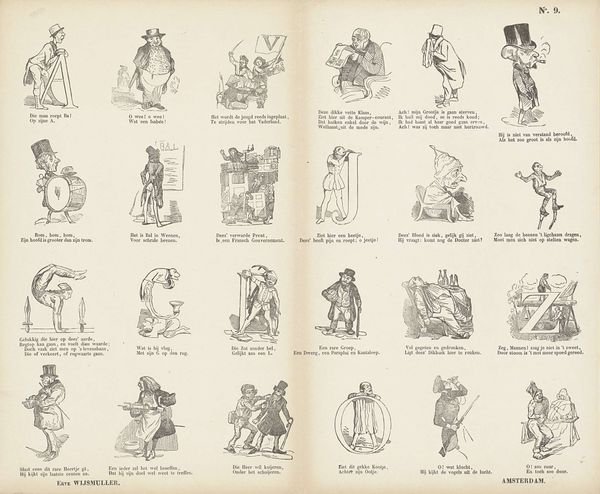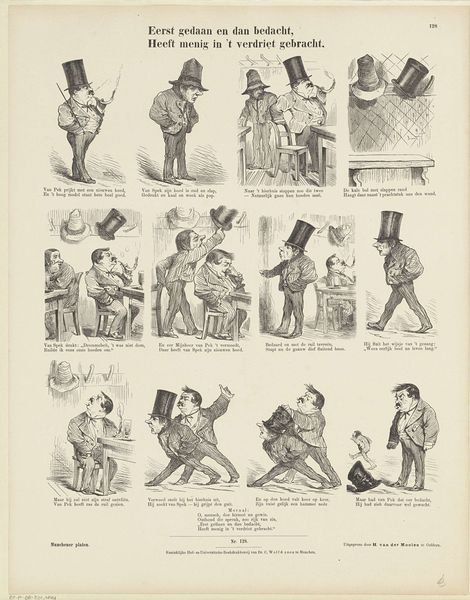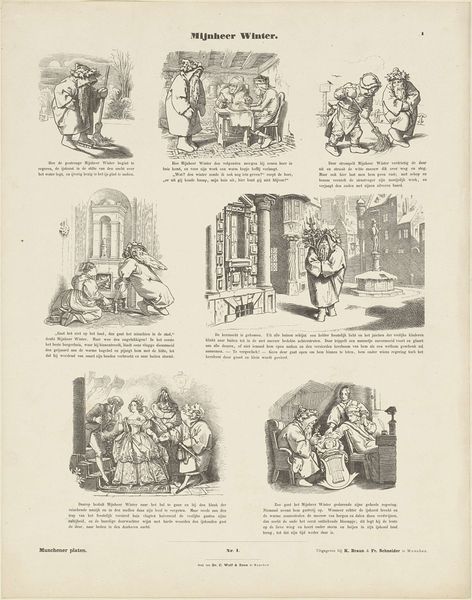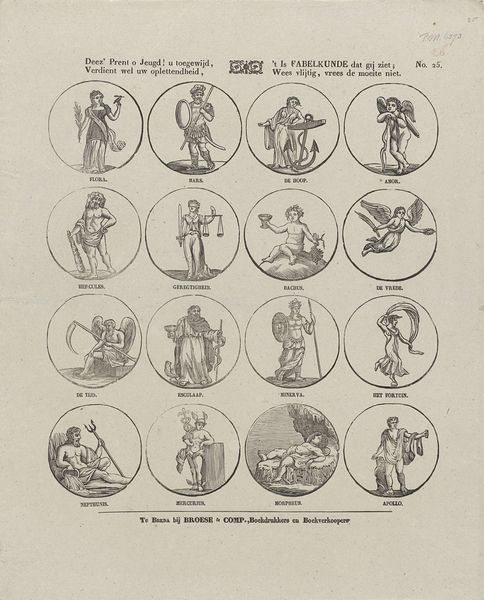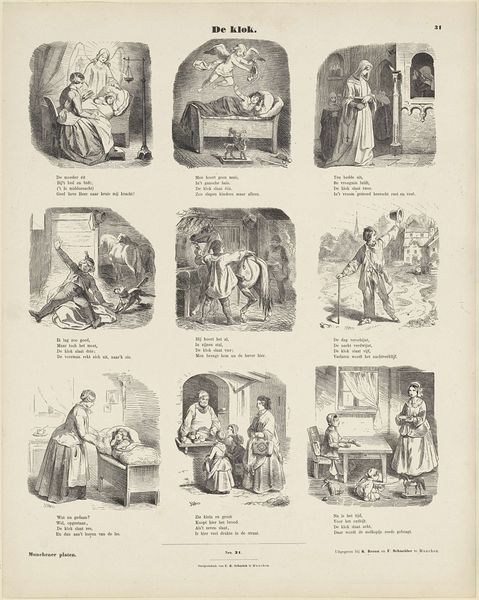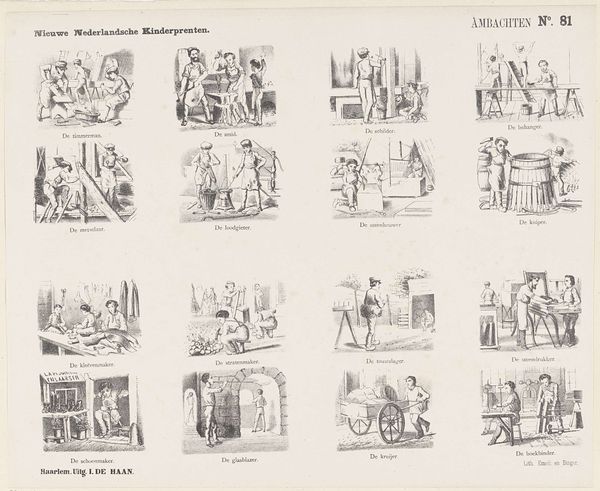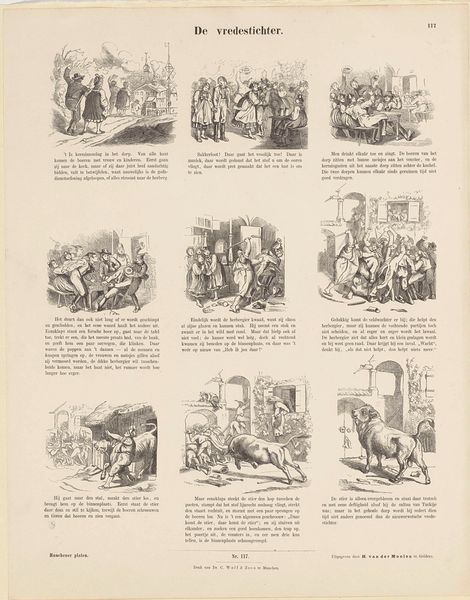
#
comic strip sketch
#
quirky sketch
#
narrative-art
# print
#
caricature
#
sketch book
#
personal sketchbook
#
idea generation sketch
#
sketchwork
#
comic
#
sketchbook drawing
#
genre-painting
#
storyboard and sketchbook work
#
sketchbook art
#
realism
#
initial sketch
Dimensions: height 444 mm, width 349 mm
Copyright: Rijks Museum: Open Domain
Curator: This intriguing print is titled "De boer met eieren," or "The Farmer with Eggs," dating to around 1843 and attributed to F. Steub. It's a fascinating tableau, almost like a comic strip before its time. What catches your eye? Editor: It has a sort of dark whimsy about it, like a proto-graphic novel dealing with peasant life. I'm curious about the intended audience. Was it meant for the educated elite or a broader public? Curator: That's a crucial question. The medium is a print, meaning it was reproducible. Prints in this era served a variety of purposes, from political satire to instructional material. Looking at the caricatured figures, and the snippets of text, my sense is it was targeting the burgeoning middle class, who were increasingly literate and eager for accessible forms of entertainment and social commentary. Editor: So, these images served as a kind of visual currency, circulating within a particular social sphere, perhaps reinforcing certain ideologies about rural life and trade. I’m interested in the relationship between the images and the captions. They create a mini-narrative across the page that engages us. Curator: Precisely! The text adds another layer, suggesting stories about trade and possibly social interactions of that time. Editor: Are the individual frames offering critique of rural life, perhaps pointing to economic hardships or social inequities through humor? The farmer carrying eggs seems a symbolic worker making his way across multiple transactions of everyday existence. It feels like a statement on class division of labor, made lighthearted by this method of printed dissemination. Curator: Absolutely. These images tap into common social anxieties, using the figure of the farmer and the exchange of eggs as a lens through which to examine economic and social dynamics. Editor: This artwork feels like more than just art—it is more akin to a social document that highlights nineteenth-century ideas and tensions related to class, labor, and market economies in accessible forms for the modern eye. Curator: Indeed, Steub's print cleverly captures the cultural climate and the power dynamics woven into daily life through humor. It's something to see in such an early moment.
Comments
No comments
Be the first to comment and join the conversation on the ultimate creative platform.
